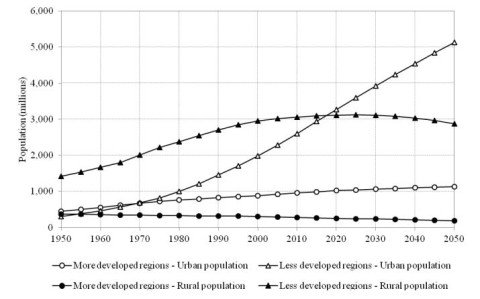by Seth Kaplan | Dec 15, 2013 | Africa, Conflict and security, Economics and development, Global Dashboard, South Asia
 Discussions about how to fix fragile states usually start and end with national level politics and institutions. But what if the key to improving their condition lies elsewhere – in their major cities? (more…)
Discussions about how to fix fragile states usually start and end with national level politics and institutions. But what if the key to improving their condition lies elsewhere – in their major cities? (more…)
by Mark Weston | May 7, 2013 | Africa, Economics and development

Sunday’s El País carried a surprising article detailing the increase in immigration from Africa to Spain in the past two years.
Although Spain is in the midst of a debilitating economic crisis, with an unemployment rate of over 27%, the number of would-be migrants crossing the Strait of Gibraltar from Morocco in the first quarter of 2013 has quadrupled compared with the corresponding period in 2012. Alarmingly, the proportion using inflatable rubber dinghies – the kind your kids play on at the beach – has risen from 15% to 90% in the past year. These dinghies are designed to be used by two people, but in the Strait they are often intercepted with up to ten on board (Spain’s coastguard has yet to hear of one that has completed the fourteen kilometre journey – the lucky ones are rescued before they sink). In Morocco, the market in these vessels is thriving – a 2-3 metre boat that can be had for €300 in the Spanish beach resorts will set you back over €600 in Tangiers.
This continued flow of migrants from Africa to Europe gives the lie to the “Africa Rising” story peddled by some Western media outlets of late. Although GDP is growing in many parts of the continent, most Africans see nothing of this. The millions who have migrated from villages to cities in search of a better life too often end up with nothing to do, and in their desperation are forced to look further afield, to Europe, for a way out of poverty (as the chief prosecutor in the Spanish port town of Algeciras noted, ‘many people would love to have our crisis’).
While researching my new book, The Ringtone and the Drum: Travels in the World’s Poorest Countries, which as well as analysing the great social upheavals the developing world is going through as it modernises is an attempt to give voice to the people experiencing these changes on the ground, I observed this frustration at first hand. The population of Bissau, the capital of the tiny West African nation of Guinea-Bissau which was the first stop on my trip, has quadrupled in the past thirty years. Whole villages in the interior have emptied out as the land has become too crowded to farm and the lure of modernity entices people to the cities. My wife Ebru and I spent a few weeks in one of Bissau’s poorest districts, where, as the excerpt below shows, urbanisation’s losers face a constant dilemma over whether they too should undertake the perilous journey to the West:
Since there is no power and the heat quickly rots anything perishable, Bissau’s residents must lay in a new supply of food each day. Every morning, therefore, we walk down the paved but potholed road that leads from our bairro to Bissau’s main market at Bandim. The market is a labyrinth, its narrow dark lanes winding between rickety wooden stalls whose tin roofs jut out threateningly at throat height. A press of brightly-dressed shoppers haggles noisily over tomatoes, onions, smoked fish and meat. The vendors know their customers – you can buy individual eggs, teabags, cigarettes, sugar lumps and chilli peppers; bread sellers will cut a baguette in half if that is all you can afford; potatoes are divided into groups of three, tomatoes into pyramids of four; matches are sold in bundles of ten, along with a piece of the striking surface torn from the box. In the days leading up to Christmas and New Year, which all Guineans celebrate regardless of their religious persuasion, the market is crowded and chaotic, but after the turn of the year, when all the money has been spent, it is empty and silent.
Only the alcohol sellers do a year-round trade. On a half-mile stretch of the paved road there are thirteen bars or liquor stores. They sell cheap Portuguese red wine, bottled lager, palm wine and cana, a strong rum made with cashew apples. Bissau has a drink problem. Its inhabitants’ love of alcohol is well-known throughout West Africa. Back in Senegal, a fellow passenger on one of our bush taxi rides had warned us that Guineans ‘like to drink and party but they don’t like to work.’ Later in our trip, on hearing we had spent time here, Sierra Leoneans would talk in awed tones of Guineans’ capacity for alcohol consumption. The liquor stores near our bairro are busy at all hours of the day and night. Christians and animists quaff openly, Muslims more discreetly. (more…)
 Discussions about how to fix fragile states usually start and end with national level politics and institutions. But what if the key to improving their condition lies elsewhere – in their major cities? (more…)
Discussions about how to fix fragile states usually start and end with national level politics and institutions. But what if the key to improving their condition lies elsewhere – in their major cities? (more…)
